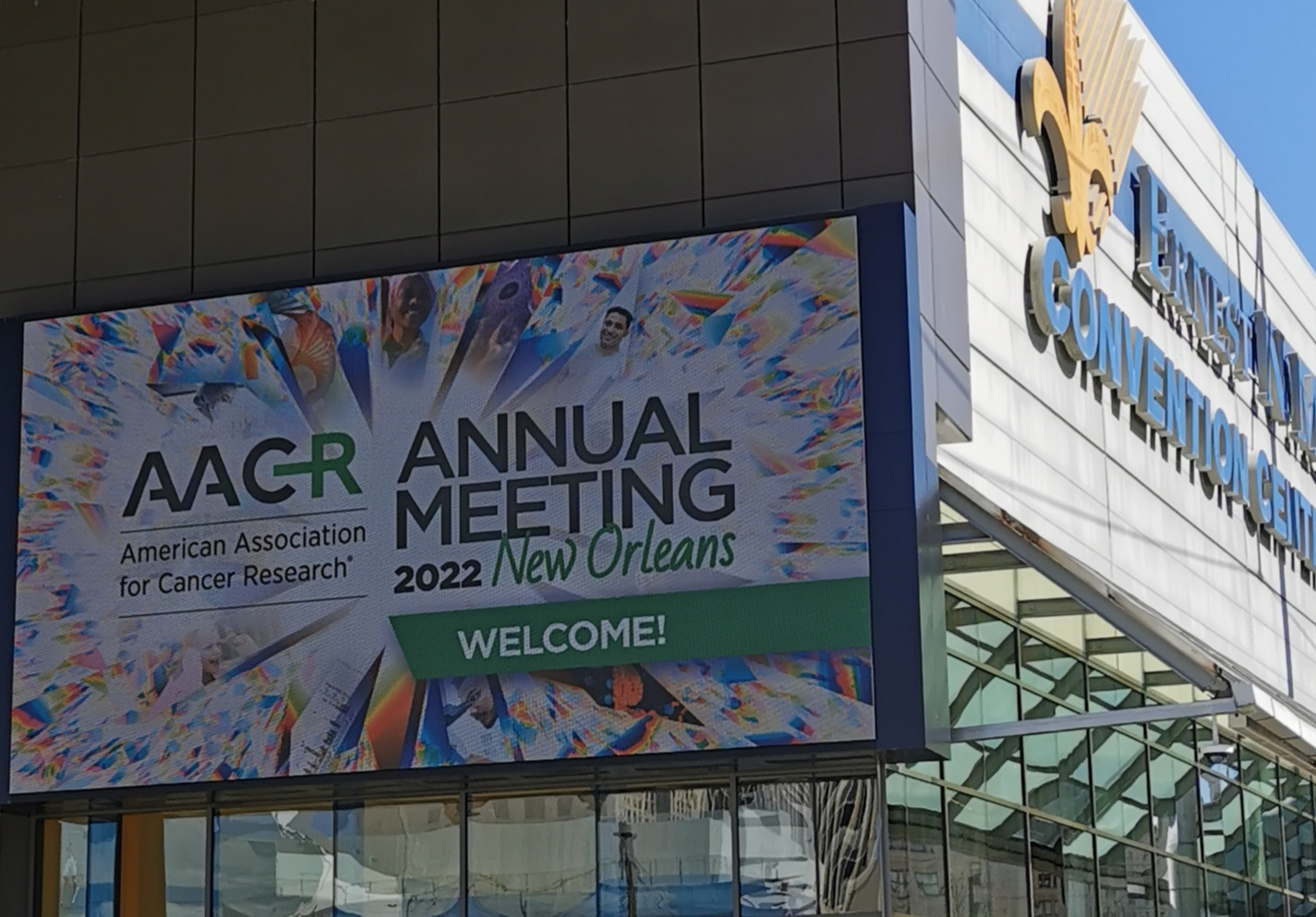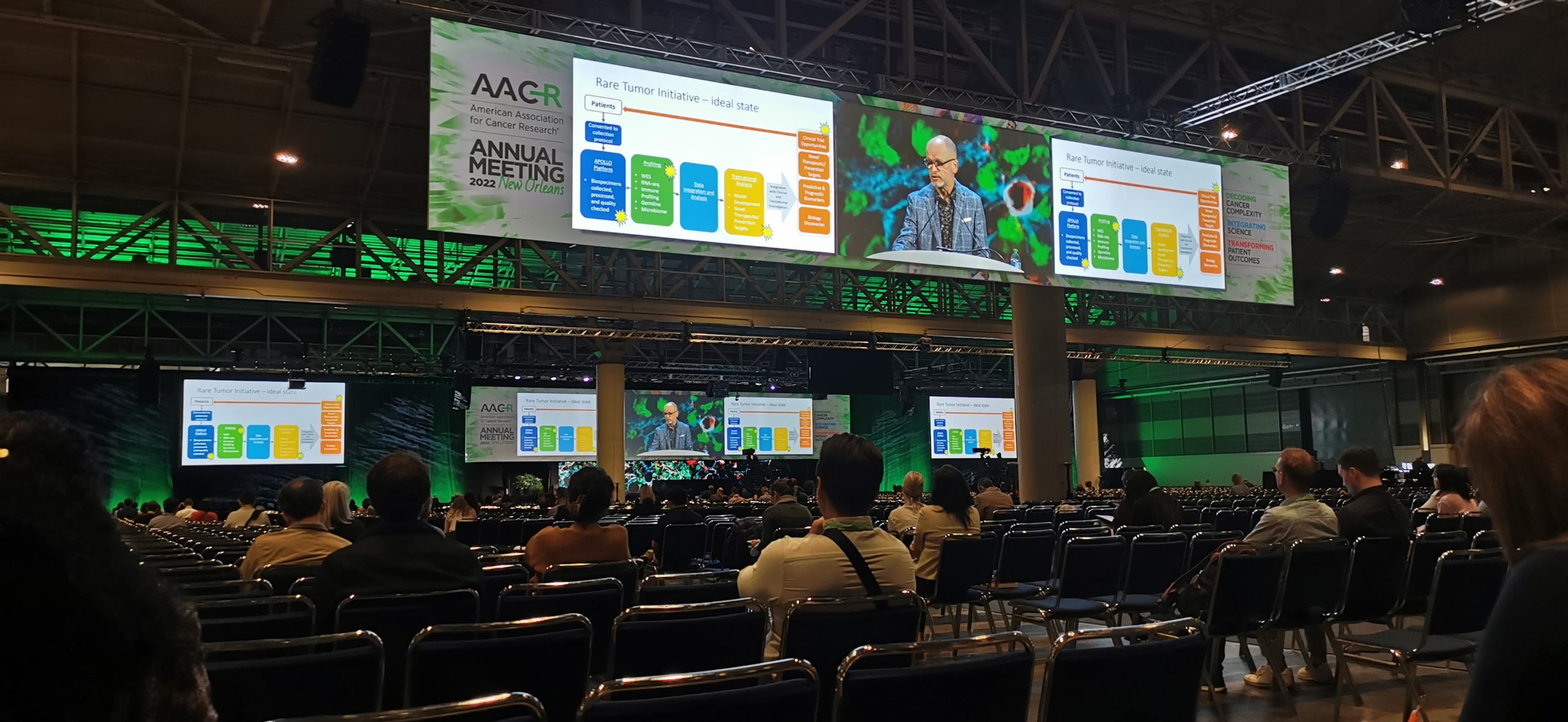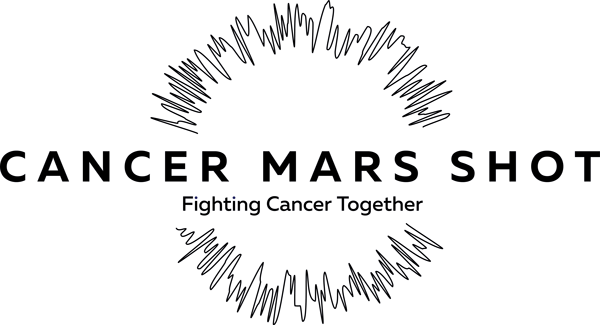AACR 2022 Annual Meeting – Highlights and Future Goals

The American Association for Cancer Research AACR 2022 Annual Meeting is one of the most significant events in cancer research. The conference brings together scientists and clinicians who share their experiences, collaborate, and set new goals and objectives to advance our understanding of cancer mechanisms and find new ways to prevent, diagnose, and treat this disease.
In addition to all the outstanding talks and roundtables, the AACR hosts also one of the biggest exhibit shows in the field, which gathers cancer-focused pharmaceutical and biotech drug developers and all innovative technology and service providers supporting translational drug development process, policymakers, and patient support groups.
This year's conference in New Orleans was long-awaited after a two-year break for in-person meetings due to the pandemic. For our team, it was thrilling to come back to the city where our company was founded and attend the conference for the first time as an exhibitor. We were excited to meet our partners in person, make new connections and get up to date with the latest advancements and the future goals the field is outlining towards making life-saving cancer treatments efficient, safe, and available to all patients.
"As reflected in the theme of this year's meeting, “Decoding cancer complexity, Integrating science, Transforming patient outcomes” – the pioneering strides you and your colleagues are making across the spectrum of cancer science are driving transformative progress against the disease at an exhilarating pace," said Dr. Margaret Foti, CEO of the AACR, at the Opening Ceremony on April 9th.
Here, we outline and reflect on the main highlights of the conference, glancing at what they mean for the future of cancer research.
Future directions for basic and translational cancer research
On the final day of the conference, three members of the Program Committee reviewed the highlights and significant themes from the meeting. The last session started with Program Committee member Dr. Danny R. Welch from the University of Kansas Cancer Center, who overviewed the key topics and trends in basic and translational cancer research.
The tumor microenvironment remains a significant objective for the field, highlighting the importance of diving deeper into the complexity and diversity of interactions and communications between tumor cells and the normal tissues surrounding them.
The topic of variability in cancer goes far beyond the tumor microenvironment and is also strongly associated with research focused on metastases: the primary cancer morbidity and mortality cause. The speaker stressed the urgent need to recognize metastases as distinct tumor phenotypes as they are often characterized with driver mutations and biomarkers different from the primary tumor.
Other areas and technological tools offering great promise included better understanding and targeting of the metabolic pathways, deployment of artificial intelligence tools, and leveraging the potential of non-coding RNAs and degrader molecules. Last but not least, Welch listed patient priorities: an essential highlight of all sessions and discussions at this year's AACR.
The speaker closed the talk with a visionary list of nine critical themes in preclinical cancer research, all of which begin with the letter M: Microenvironment, Microbiome, Metabolism, Mitochondria, Machine learning, Mindset, Mutualism, Meaning, and Medicines. Keeping those in mind, we strive to move towards the next cancer treatment era.

Acknowledging cancer disparities and population diversity - the central theme for the future of cancer research
Patient diversity, cancer disparities, and the issue of underserved or underrepresented groups emerged as key questions throughout various sessions at the conference. Genomic variability is the basis of race and ethnicity, and it has been well-established that incidence, response, and survival depend on the genomic profiles of patients. However, the ethnic background of patients and the role of social factors in cancer epidemiology have been neglected. This neglect is now considered the main challenge for many current cancer research and treatment challenges, such as resistance mechanisms and very distinct patterns in cancer incidence and survival rates.
The lack of sufficient appreciation of these factors and the persistent and growing underrepresentation of different ethnic and social groups in pre and clinical cancer research is directly reflected in significant disparities in diagnostics, treatments, and outcomes among patients. "Health disparities occur along the continuum of cancer, from its initial development to detection, diagnosis, treatment, and either survivorship or supportive care," said Dr. Jennifer A. Doherty from the University of Utah. "Where you live has a profound impact on the care you receive," Doherty added. Recognizing this problem is an essential and promising first step toward improving patient cancer care and making personalized treatments a standard practice.
A statement from the closing session, "Greater diversity = better science," clearly highlights the new approach and mindset the community needs to embrace to tackle the issue. For us at Audubon, this is particularly important because it is in line with our values and goals. By constantly increasing and diversifying our clinical network, we aim to increase diversity in biospecimen collections and improve the way translational and pre-clinical research is conducted.
The importance of our mission was further supported by another impressive talk by Dr. Talia Golen from the Sheba Medical Center in Israel during the Biomarkers, Models and Mechanisms Minisymposium. "Our best model is our patients, "was written on one of Dr. Golen's slides.
These statements and discussions reflect on the importance of diverse, genetically profiled patient-derived samples to advance cancer research. Our goal at Audubon is to support researchers by giving them access to such specimens. We are happy to see that biospecimens are gaining more appreciation from the community and are becoming an integral part of all cancer research-related discussions.
New working groups are tackling underserved challenges
The eagerness of the AACR community to tackle the challenges in cancer treatment has been supported by the establishment of new working groups.
The new Population Sciences Working Group replaces the Molecular Epidemiology Working Group with a new title and will be working to “foster and strengthen team-based, transdisciplinary research to develop a more integrated understanding of cancer etiology and outcomes in human populations”.
The Cancer Prevention Working Group is a newly created group dedicated to focusing attention on cancer prevention and progress toward a cure. In addition, AACR's Cancer Evolution Working Group was established in July 2021 and planned its first-ever plenary session dedicated to tumor evolution for the final day of this year's Annual Meeting.
Two new sessions: Pre-cancer niche and Cancer interception, were created for the first time in New Orleans. These two topics are highly interconnected and reflect the latest trends and innovations in the cancer field. "We need to start by looking at normal tissue. What we see in cancer reflects what's going on in normal, polyclonal tissue," said Peter J. Campbell from the Wellcome Trust Sanger Institute at Cambridge, United Kingdom. His team performed successive sequencing of breast tissue samples from 33 women, concluding that mutations in normal tissue accumulate at a linear rate over time, with approximately 13 new mutations per year. Indeed over the last years, the interception of cancer has been evolving from theory to clinical practice.
The identification of individuals at high risk and the development of cancer vaccines for such patients offer new perspectives for moving from cancer treatment to cancer prevention. To this end, a promising project is the Precancer Atlas, working on collecting and analyzing patients' DNA and pre-cancer cells to identify future malignancies. Similar projects are based on patient data and biospecimen collections and are a strong affirmation of their role in the future of cancer research.

Biospecimens are a crucial part for the advancement of all key themes in cancer research
Understanding the tumor microenvironment, identifying biomarkers to recognize the pre-cancer state in various tissues to empower the interception of tumor development, and connecting those with each patient's genomic, ethnic, and social background have been outlined as the next major steps cancer researchers need to take in their fight with cancer. Advancing on all of these research fronts is impossible without patient samples. Our job at Audubon is to make the connection between scientists and patient-derived samples. We are here to help doctors and scientists from across fields fight cancer by supporting them with our customized biospecimens procurement services. We are happy to have actively participated in this event and we are convinced, more than ever, that the future of cancer research relies on efficient and well-collected patient biospecimens.
Do you need high-quality biospecimens for your project? Please take a look at our collection capacities here or get in touch with our team.

